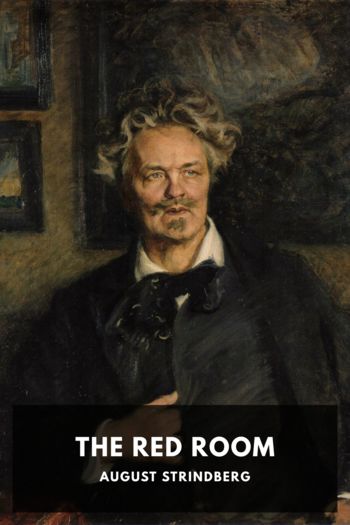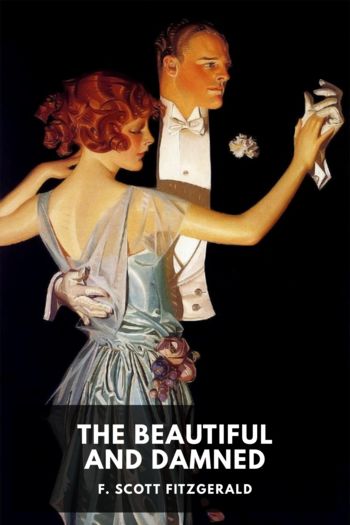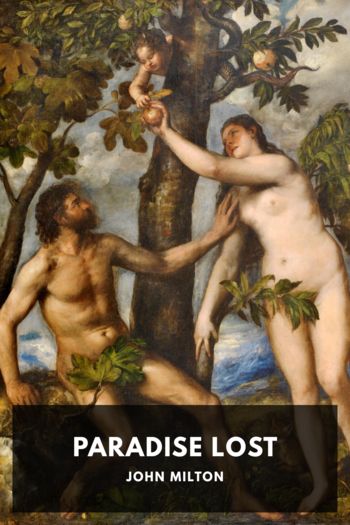The Inferno by August Strindberg (love novels in english .txt) 📕

- Author: August Strindberg
Book online «The Inferno by August Strindberg (love novels in english .txt) 📕». Author August Strindberg
After some moments of reflection, my mother-in-law replied: “I cannot dispute your assertion; for I have found in your writings a spirit of aspiration and endeavour, whose efforts have been involuntarily frustrated. Certainly, you must be doing penance, for sins which you committed before your birth. You must in your former existence have been a bloodstained conqueror, and therefore you suffer repeatedly the terrors of death without being able to die. Now be religious inwardly and outwardly.”
“You mean that I should become a Catholic?”
“Yes.”
“Swedenborg says it is forbidden to quit the religion of one’s fathers, for everyone belongs to the spiritual territory on which he is born.”
“The Catholic religion receives graciously everyone who seeks it.”
“I will be content with a lower position. In case of need I can find a place among the Jews and Mohammedans, who are also admitted to heaven. I am modest.”
“Grace is offered you, but you prefer the mess of pottage to the right of the firstborn.”
“The right of the firstborn for the Son of a Servant!10 Too much! Too much!”
Restored to self-respect by Swedenborg, I regard myself once more as Job, the righteous and sinless man, whom the Eternal tries in order to show the wicked the example of a righteous man enduring unjust sufferings.
My pious vanity is tickled by the idea. I am proud of the distinction of being persecuted by misfortune, and am never weary of repeating, “See! how I have suffered.” Before my relatives I accuse myself of living in too much luxury, and my rose-coloured room seems to me to be a satire upon me. They notice my sincere repentance, and overwhelm me with kindnesses and little indulgences. In brief, I am one of the elect; Swedenborg has said it, and confident of the protection of the Eternal, I challenge the demons to combat.
On the eighth day which I spend in my rose-coloured room the news arrives that my mother-in-law’s mother, who lives on the bank of the Danube, is ill. She has a pain in the liver accompanied with vomiting, sleeplessness, and attacks of palpitation at night. My aunt whose hospitality I enjoy is summoned thither, and I am to return to my mother-in-law in Saxen. To my objection that the old lady has forbidden it, they reply that she has withdrawn her order of expulsion, so that I am free to arrange my residence where I like. This sudden change of mind astonishes me, and I hardly dare to attribute it to her illness. The next day she gets worse. My mother-in-law gives me in the name of her mother a bouquet as a sign of reconciliation, and tells me in confidence that, besides other wild fancies, the old lady thinks she has a snake in her body. The next news is that she has been robbed of 1000 gulden, and suspects her landlady of stealing them. The latter is enraged at the unjust suspicion and wishes to bring an action for libel. The old lady, who had retired hither to die quietly, finds her domestic peace completely destroyed. She is continually sending us something—flowers, fruit, game, pheasants, poultry, fish.
Is the old lady’s conscience troubled at the prospect of judgment? Does she remember that she once had me put out on the street, and so obliged me to go to hospital? Or is she superstitious? Does she think she is bewitched by me? Perhaps the presents she sends are meant as offerings to the wizard, to still his thirst for vengeance.
Unfortunately, just at this juncture, there comes a work on magic from Paris containing information regarding so-called witchcraft. The author tells the reader that he must not regard himself as innocent, if he merely avoids using magic arts; one must rather keep watch over one’s own evil will, which by itself alone is capable of exercising an influence over others in their absence.
The results of this teaching on my mind are twofold. In the first place, it arouses my scruples at the present juncture, for I had raised my fist in anger against the old lady’s picture and cursed her. Secondly, it reawakens my old suspicions that I myself am the victim of malpractices on the part of occultists or theosophists. Pangs of conscience on one side, fear on the other! And the two millstones begin to grind me to powder.
Swedenborg describes Hell as follows: The damned soul inhabits a splendid palace, leads a luxurious life there, and regards himself as one of the elect. Gradually the splendours disappear, and the wretched soul finds that it is confined in a wretched hovel and surrounded by filth. This is parallelled in my own experience.
The rose-coloured room has disappeared, and as I remove into a large chamber near that of my mother-in-law, I feel that my stay here will not be of long duration. As a matter of fact, all possible trifles combine to poison my life and to deprive me of the necessary quiet for work. The planks of the floor sway under my feet, the table wobbles, the chair is unsteady, the articles on the washing-stand clash together, the bed creaks, and the rest of the furniture moves whenever I cross the floor. The lamp smokes, the ink-pot is too narrow so that the pen-holder gets inky. The farmhouse smells of dung and manure, ammonia, sulphuretted hydrogen, and sulphuric acid. The whole day there is a noise of cows, swine, calves, cocks, turkeys, and doves. Flies and





Comments (0)